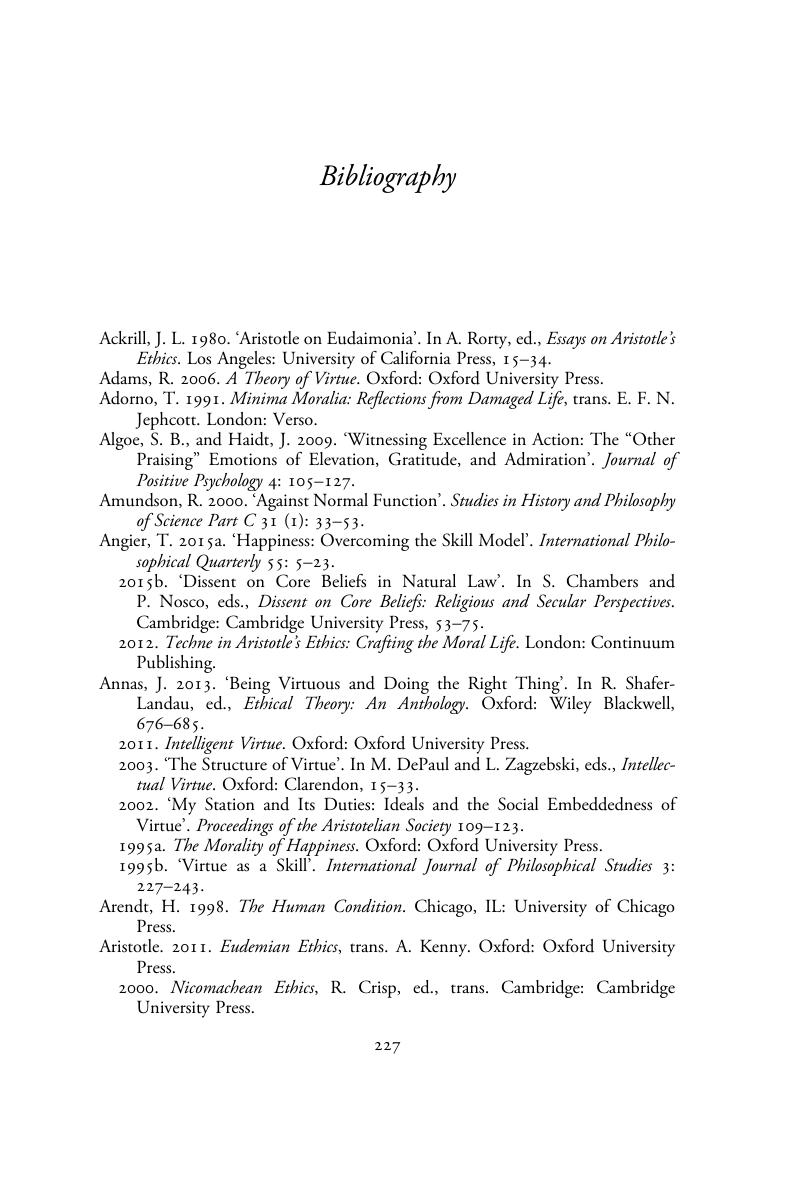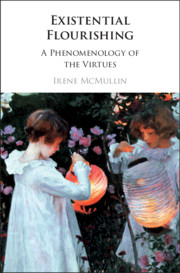Book contents
- Existential Flourishing
- Existential Flourishing
- Copyright page
- Dedication
- Contents
- Acknowledgments
- Introduction
- Chapter 1 What Is Flourishing?
- Chapter 2 Three Domains of Reason
- Chapter 3 Justice, the Virtues, and Existential Problem-Solving
- Chapter 4 Unity, Comparison, Constraint
- Chapter 5 Called to Be Oneself
- Chapter 6 Corrupting the Youth
- Chapter 7 Patience
- Chapter 8 Modesty
- Chapter 9 Courage
- Conclusion
- Bibliography
- Index
- References
Bibliography
Published online by Cambridge University Press: 13 December 2018
- Existential Flourishing
- Existential Flourishing
- Copyright page
- Dedication
- Contents
- Acknowledgments
- Introduction
- Chapter 1 What Is Flourishing?
- Chapter 2 Three Domains of Reason
- Chapter 3 Justice, the Virtues, and Existential Problem-Solving
- Chapter 4 Unity, Comparison, Constraint
- Chapter 5 Called to Be Oneself
- Chapter 6 Corrupting the Youth
- Chapter 7 Patience
- Chapter 8 Modesty
- Chapter 9 Courage
- Conclusion
- Bibliography
- Index
- References
Summary

- Type
- Chapter
- Information
- Existential FlourishingA Phenomenology of the Virtues, pp. 227 - 240Publisher: Cambridge University PressPrint publication year: 2018



